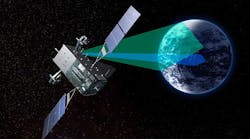Lockheed Martin Space Systems, Sunnyvale, Calif., was awarded a U.S. Air Force contract worth over $2.9 billion to design and develop three Next Generation Overhead Persistent Infrared Geosynchronous Earth Orbit Space Vehicles — a replacement system for the current Space Based Infrared System. The OPIR satellites will be a missile warning "constellation" that the Air Force intends will be more impervious to weapons systems in development now by China and Russia.
Northrop Grumman is developing the OPIR technology. As previously explained by the USAF, the new satellites will have more advanced bus and sensor technologies than the current SBIRS spacecraft they will replace, around 2023.
The sensor technology for the new satellites will be selected through a separate, competitive process.
Lockheed’s contract covers requirements analysis, design/development, critical path flight hardware procurement, early manufacturing for the three satellites, and risk-reduction efforts in advance of a system critical design review.
The OEM was initially awarded $80 million for the project. This award is the result of a sole-source acquisition and is not a multiyear contract. The work on the three satellites will be completed by April 2021.
A Lockheed Martin spokesman said the company will be “working closely with the Air Force on the rapid development of next-gen OPIR’s more advanced, resilient missile warning capability. We understand the need to ‘go fast’ while improving our national security posture against emerging threats around the world.”








